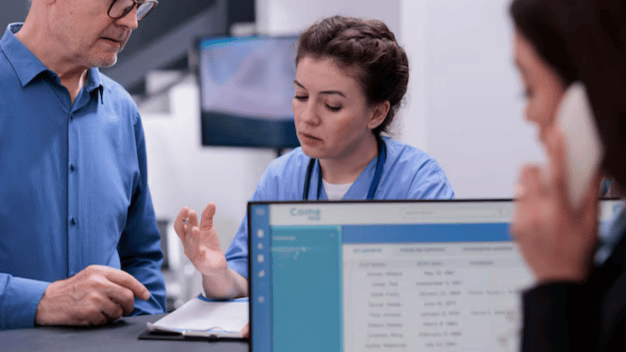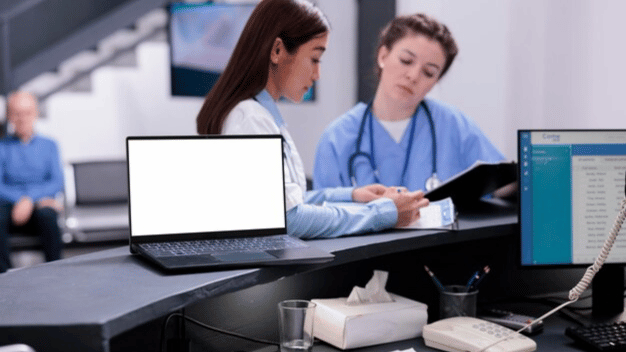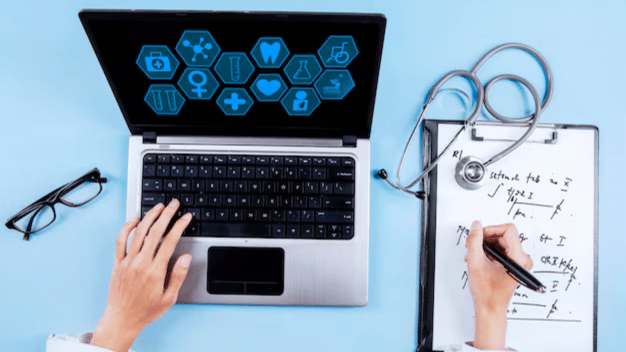Have you ever wondered how healthcare providers manage to translate complex medical treatments into a bill that makes sense? This is where medical billing and coding come in, acting as the bridge between healthcare services and financial reimbursement. Whether you’re considering a career in medical billing and coding or looking to improve your practice’s billing system, a solid understanding of this field is essential. In this guide, we’ll explore the importance of medical billing and coding, along with practical steps to get started in this rewarding profession.
- Medical Coding: Coders translate diagnoses and treatments into universal codes, using systems like ICD-10 (International Classification of Diseases) and CPT (Current Procedural Terminology).
- Medical Billing: Billers use these codes to create claims sent to insurance companies for reimbursement, managing the financial aspect of healthcare while working with both patients and insurers.
Together, medical billing and coding help streamline healthcare processes, ensuring that providers are compensated accurately while making it easier for patients to understand their healthcare expenses.

Why Are Medical Billing and Coding Important?
Ensures Accurate Compensation for Providers
Medical billing and coding help healthcare providers receive accurate and timely payment for their services, which is crucial for the financial health of practices and hospitals.
Reduces Errors and Streamlines Processes
Standardizing the way medical information is coded and billed reduces errors and streamlines operations, minimizing claim denials and speeding up reimbursements.
Supports Compliance and Regulatory Standards
Proper medical coding ensures compliance with important regulations like HIPAA (Health Insurance Portability and Accountability Act), protecting patient data and preventing legal issues.
Enhances Patient Understanding of Medical Costs
Clear billing and coding practices allow patients to better understand their healthcare expenses, providing transparency and building trust with healthcare providers.

Top Medical Billing and Coding Certifications
Certified Professional Coder (CPC) – AAPC
Focuses on CPT coding and is highly regarded, especially for those interested in working in outpatient care settings.
Certified Coding Specialist (CCS) – AHIMA
Recognized in hospitals and clinics, this certification demonstrates expertise in multiple coding systems, including ICD and CPT.
Certified Billing and Coding Specialist (CBCS) – NHA
A versatile option that covers both billing and coding, offering a broad skill set for various healthcare environments.

How to Start a Career in Medical Billing and Coding
If a career in medical billing and coding interests you, here are key steps to get started:
- Understand the RoleMedical billing and coding professionals need to be detail-oriented and comfortable working with healthcare records and insurance information. Familiarity with medical terminology is also essential.
- Enroll in an Accredited Certification ProgramMany community colleges and online programs offer certifications in medical billing and coding. Look for accredited programs by reputable bodies like the American Academy of Professional Coders (AAPC) or the American Health Information Management Association (AHIMA).
- Choose the Right CertificationCertifications such as the Certified Professional Coder (CPC) or the Certified Coding Specialist (CCS) can open doors to higher-paying roles in hospitals, outpatient facilities, and specialized clinics.
- Gain Practical ExperienceInternships or entry-level positions in healthcare facilities provide hands-on experience, making you more competitive in the job market and offering valuable real-world insights.
- Stay Current with Industry UpdatesMedical billing and coding systems are regularly updated. Staying informed through workshops, refresher courses, and certification renewals is essential for long-term success in this field.

Tips for Success in Medical Billing and Coding
Stay Organized
Accuracy is essential in medical billing and coding. Develop a system to track claims, payments, and any denials or appeals.
Keep Up with Coding Changes
Systems like ICD and CPT are regularly updated. Staying informed ensures your work remains accurate and compliant.
Develop Strong Communication Skills
Medical billers and coders often interact with healthcare providers, patients, and insurers. Clear communication is vital to clarify billing details and resolve any issues efficiently.
Utilize Technology for Efficiency
Familiarity with billing software and electronic health records (EHR) is crucial for maintaining efficiency and accuracy in today’s digital healthcare environments.
